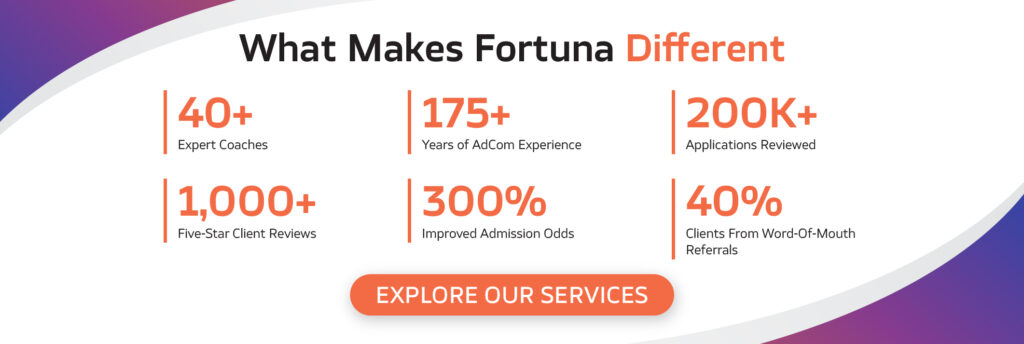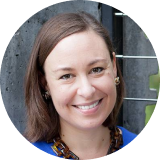Carnegie Mellon Tepper’s MBA essays include one written essay (choose from two prompts) plus a goals video essay. Essay option 1 is a behavioral question about decision-making under uncertainty; option 2 focuses on your personal and professional transformation and why Tepper. The video essay asks you to share your post-MBA goals in a clear, concise, and confident way.
To tackle these essays successfully: be specific, authentic, and self-aware. Show how you think and lead through a concrete story, link your growth goals to Tepper’s resources, and communicate your career vision with clarity and energy on video.
How to Answer Carnegie Mellon Tepper Essay Option 1?
Prompt: At Tepper, we value leaders who can make confident decisions when facing complexity and uncertainty. Tell us about a time when you had to take action without having all of the answers. How did you navigate the situation and what was the outcome? (max 500 words)
This essay is Tepper’s way of probing how you operate when the stakes are high but the path forward isn’t clear. Business school students – and business leaders – are often required to make judgment calls with incomplete data. Tepper wants to see that you can act decisively and thoughtfully in that gray zone, while bringing others along with you.
Notice that the prompt says “Tell us about a time when …” That’s the hallmark of a behavioral question – a type of question designed to reveal how you think, act, and grow in real-life situations. Behavioral questions push you to share a specific, concrete story (not a general philosophy or hypothetical) because the best predictor of how you’ll handle future challenges is how you’ve handled them in the past. Getting comfortable with tackling this type of question will serve you well not only in your essays but also at the MBA interview stage, where behavioral questions are common.
The best responses follow a clear structure that makes it easy for the reader to grasp both the challenge and your leadership qualities. The STAR method (Situation, Task, Action, Result) can help you frame your story succinctly:
- Situation/Task: Set the stage. What was uncertain, complex, or ambiguous about this situation? Who was involved, and what was at stake? Provide just enough background for context without overloading the essay with detail.
- Action: This is the heart of your essay. How did you decide what to do, despite not having perfect information? Walk the reader through your decision-making process: what factors you weighed, how you prioritized trade-offs, and how you communicated your reasoning. If you influenced or rallied others, show how.
- Result: Share the outcome. Whether the result was a clear success or a mixed bag, what matters most is your ability to reflect. Did your decision move things forward? What did you learn about yourself as a leader when the path wasn’t straightforward?
This prompt is especially well-suited to professional examples – moments when you made a judgment call under pressure, or when your initiative helped a team cut through ambiguity. But a strong personal story could also work, as long as it showcases resilience, clarity, and growth.
Don’t just narrate what happened – focus on how you thought about the problem. Your judgment under uncertainty is the centerpiece here, and Tepper wants to see evidence of both confidence and humility: the ability to act, and the self-awareness to learn.
Key Takeaways
- This is a behavioral essay – Tepper wants a specific, real story, not a hypothetical statement.
- Use the STAR method to keep your response focused and structured.
- Highlight decision-making under uncertainty: how you assessed trade-offs, rallied others, and moved forward without all the answers.
- End with reflection: what you learned and how the experience shaped you as a leader.

How to Answer Carnegie Mellon Tepper Essay Option 2?
Prompt: The Tepper School of Business is committed to helping students reach their full potential by supporting their professional and personal transformation. How do you hope to transform, both professionally and personally, during your time in the program? Please describe your development goals and steps you plan to achieve them. (500 words max)
This question gets to the heart of “Why an MBA, and why Tepper?” But it goes further, asking you to reflect on how you want to evolve as a person, not just as a professional. Tepper’s admissions team is looking for applicants who are both self-aware and growth-oriented; those who can identify where they are today, articulate where they want to go, and explain how Tepper is the right catalyst for that transformation.
To craft a strong response, consider these steps:
- Start with self-awareness. Reflect on your current strengths and areas for development. What gaps in your skill set, leadership style, or personal approach do you want to close? A brief nod to your past experience helps set the context.
- Define your transformation goals. Be concrete about how you hope to grow – both professionally (e.g., expanding strategic leadership skills, moving from technical expert to general manager, deepening global perspective) and personally (e.g., becoming more confident in ambiguous situations, honing cross-cultural communication, or developing resilience).
- Connect to Tepper’s resources. Show that you’ve researched the program by linking your goals to specific opportunities. For example:
- The Accelerate Leadership Center to hone interpersonal and executive presence.
- Interdisciplinary project work that integrates Tepper with CMU’s world-class strengths in technology and innovation.
- Clubs and leadership roles as a platform to practice and refine new skills.
- Tepper’s tight-knit community and small class size, which foster meaningful collaboration and mentorship.
- Show proactive ownership. Tepper wants students who take responsibility for their own development. Frame your essay to show not only what Tepper can do for you, but also how you will leverage those resources intentionally – and how you’ll give back to the community along the way.
Remember, this essay isn’t about rattling off a list of courses or clubs. It’s about painting a before-and-after picture of yourself: where you stand now, and the leader you aspire to become by graduation.
Key Takeaways
- This is essentially a “Why an MBA/Why Tepper” essay – with both a professional and personal dimension.
- Demonstrate self-awareness: what you already bring, and where you want to grow.
- Tie your aspirations directly to Tepper’s resources and culture, showing you’ve done your research.
- Position yourself as someone who will take initiative and contribute actively to the community.

How to Answer Carnegie Mellon Tepper’s Goals Video Essay?
Prompt: We know this is an important component of your decision to attend business school. We take it seriously as well. Please describe your post-MBA career goals.
It would be helpful to consider the following information in your response:
- You have up to 2 minutes to respond to this question.
- Please be as specific as possible. If you have not yet identified specific companies, that is okay. Just tell us what interests you for your next role or company. What about the industry, company, or functional role is appealing to you?
- If you have any criteria you are using to evaluate career opportunities, please share those as well. We may have great opportunities to add to your list.
- How does this post-MBA career goal relate to your long-term career plan?
Instead of presenting your career goals in an essay, Tepper asks you to deliver them directly on video. This format allows the admissions team to hear your story in your own voice – giving them a sense of your clarity, confidence, and enthusiasm. Think of it as your personal elevator pitch: What do you want to do after your MBA, why does it matter to you, and how does it connect to your longer-term ambitions?
Here’s how to approach it:
- Be clear and specific. State your immediate post-MBA goal – industry, function, and, if relevant, types of companies. If you don’t name specific recruiters, you should give enough detail to show you’ve thought carefully about your direction (e.g., “management consulting with a focus on healthcare clients” rather than just “consulting”).
- Explain the “why.” Share what excites you about this path and what motivates your choice. If you have criteria for evaluating opportunities – such as global scope, technology focus, or a commitment to sustainability – mention them.
- Connect to your long-term vision. Show how your short-term goal is a stepping stone toward the bigger impact you hope to make in your career. Keep it high level here – you won’t have time for detail – but make sure the link between the two is clear.
- Practice for the format. Two minutes is shorter than it sounds (about 200–250 words spoken aloud). Draft your talking points, then practice until you can deliver them smoothly without sounding memorized. Smile, speak with energy, and imagine you’re talking to a person rather than a camera. Your goal is for the viewer to feel a connection with you.
Remember, Tepper isn’t only evaluating the substance of your goals – they’re also observing how you present yourself and your communication skills. Do you come across as thoughtful, focused, and authentic? That’s just as important as the content of your answer.
Key Takeaways
- The video format gives Tepper a chance to see how clearly and confidently you communicate your goals, not just what they are.
- Structure your response around three essentials: your short-term goal, why it matters to you (and how you’ll evaluate opportunities), and how it links to your long-term vision.
- Keep it concise – about 200–250 spoken words within the 2-minute limit.
- Practice until you can deliver naturally, with warmth and energy, rather than sounding scripted.
- Aim to leave the viewer with a sense of your focus, motivation, and personality.

Let’s Get You Into Carnegie Mellon Tepper
Fortuna Admissions is a dream team of former MBA admissions decision-makers from top schools. We know what it takes to stand out because we’ve made the admit decisions ourselves. Whether you need help refining your story, strengthening your essays, or navigating interviews, we’ve got you covered.
Our free consultations are consistently rated the best in the industry – and they’re a great way to get personalized advice and honest feedback on your profile. Book your free session with us today.




